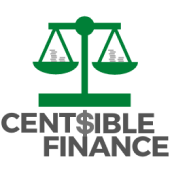
By Melody C. Kerr, Founder, Centsible Finance
If you’ve been reading along over the past few weeks, you know I’ve been talking about how to get out of the one thing that plagues 80% of us in the U.S.: Debt.We’ve talked about the importance of getting out of it (to achieve freedom), where to start (with a plan), and even how we wind up in debt in the first place (spending more than we earn). Although debt steals from you, before we face it head-on, there’s another important thing we must do first: Save.
Saving Earns for You
I believe that, while debt steals from you, saving earns for you. As a matter of fact, it’ll take you less time to save up $1,000—what I recommend having in a “rainy day” account—than it’ll take me to pay off a $1,000 credit card balance.
I showed this to you last time, but let me explain… The average interest rate on a credit card is about 16%; and the minimum payment is typically 3% of your balance or $25 (whichever is greater). A 3% minimum payment on a $1,000 balance is $30. So, it would take me seven years (and an extra $565) to pay off the balance, if I paid the minimum every month.
On the other hand, if you saved $30 every month, it would take you less than half the time.
But there’s a lot more to saving than this…
Save for a Rainy Day
What I mean by that is this: Life is full of surprises. Good and bad. Some days will go according to plan, with everything running smoothly from start to finish. And some days will exceed your expectations, bringing all the things you’ve been hoping and praying for to fruition.
But some days will be the exact opposite…
We’ve all probably heard the saying: Save for a rainy day. It sounds pretty cliché, but it couldn’t be any more true.
When something unexpected happens—say, a leak in your bathroom, or a medical expense your health insurance doesn’t cover, or a flat tire—it’s just that. Unexpected… And, unfortunately, we can’t avoid it and push it off to the wayside.
So, what do we do? Well, we have to pay for it. And that’s where saving comes in…
You can tell by now that I’m a firm believer in saving. Even if you don’t know what you’re saving for, you should save; because, like the unexpected things I just mentioned, you never know when the money you’ve been saving will come in handy.
It’s not a matter of if something unexpected (and expensive) will happen… It’s a matter of when. We’ll all experience “rainy days.”
So, don’t think that your money can be put to better use, if you spend it rather than save it. And don’t think that your money is just sitting there doing nothing. (It’s actually not. In general, the money in your bank account earns a little interest… I’ll talk about that in another issue.) We’ll be doing ourselves a disservice, if we think that way.
Instead, think of the money—and heartache—you’ll save yourself, when you can pay cash for that terrible, unexpected situation… That leak. That medical expense. That flat tire.
But what if it’s a good surprise, like a child or a job relocation? A newborn is another mouth to feed. And you may have landed a promotion, but your employer may not pay for your moving costs. They’re both wonderful, but you may worry that you’re not ready to handle them financially.
Think of how much energy, time, and happiness you can spend on those surprises when you know you have the savings.
One Cent at a Time
The last thing I want to say is, if you’re reading this and now you realize you should’ve been saving all this time… don’t worry.
I’ve said this before and I’m saying it again: It’s spilt milk.
Maybe you could have done things differently, and maybe you could have been saving all this time. Maybe you’re facing an unexpected situation right now and realize you really should have been saving. But it’s already done.
Don’t pour your energy into beating yourself up over your “shoulda, coulda, wouldas.” Pour your energy into what you can do now. Because the truth is… you can do so much, if you put your mind to it.
So, believe in the cliché: Save for a rainy day. And take some time to read “How to Cut Back.” It’ll help you begin to think creatively and find areas in your life where you can cut back and give yourself the opportunity to start saving.
And remember: Financial freedom is our ultimate goal.
With it comes freedom for the important things in life, like being free enough to lend a helping hand to someone in need… to provide over and beyond for your family… to travel… to live the life you’ve always wanted.
But freedom starts with a plan. A plan that comes with saving first and getting out of debt second.
And we’ll get there… one cent at a time.
With gratitude,
Melody C. Kerr
Certified Financial Coach
P.S. Achieving financial freedom isn’t something you should try to do on your own. So, if you need help getting started with a plan, you can schedule a complimentary consultation with me right here.

